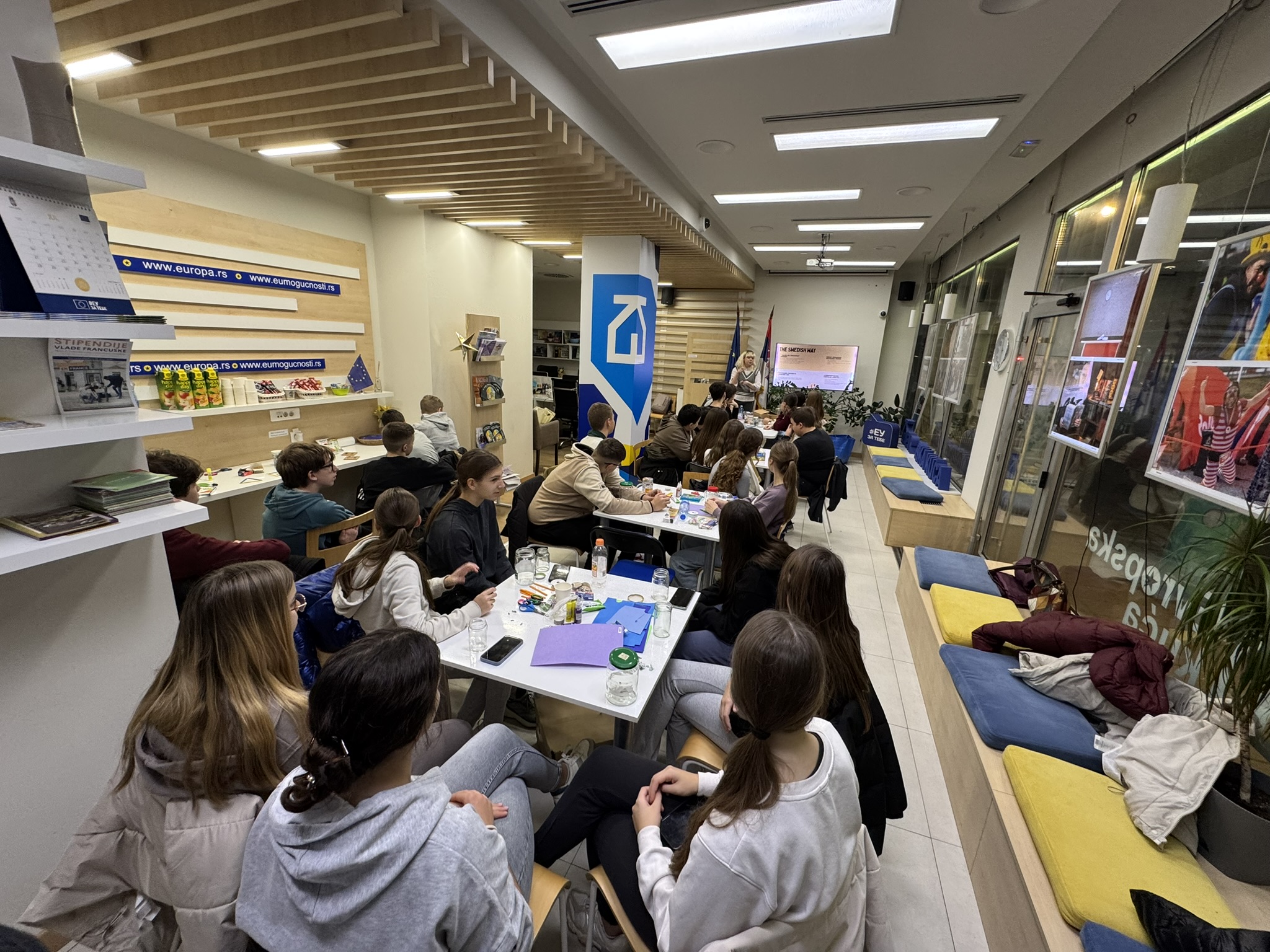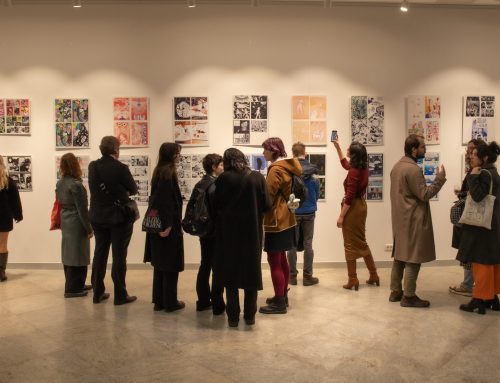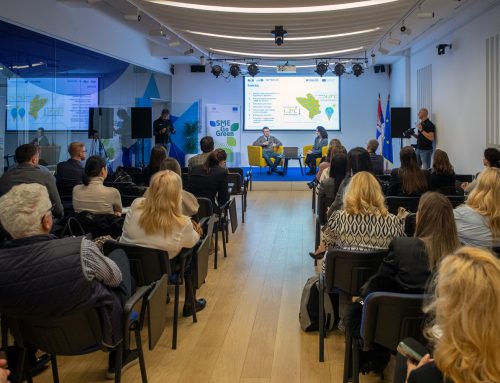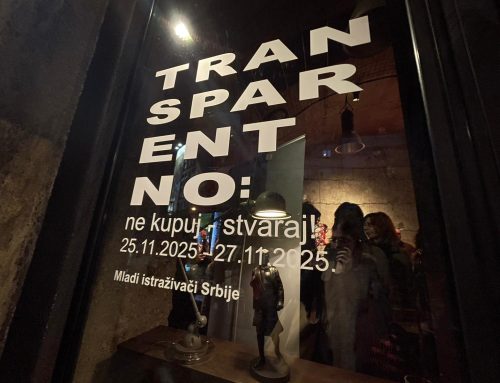In Sweden, there’s a word the whole world is starting to love: fika. It’s not just a coffee-and-cake break; it’s a small daily ritual: you slow down, sit with friends or colleagues, talk about everything and nothing, and leave your phone aside.
In Serbia we know this feeling perfectly – we’ve always lingered for hours “over coffee”, sharing stories and enjoying a warm drink. That’s why on 20 November, Europe House Niš beautifully blended Swedish fika, Serbian soul, and the global fight for the planet.
Under the title “The Art of Fika – Give New Life to Old Things”, the workshop combined the relaxed atmosphere of Swedish socializing with creative upcycling. As the scents of coffee and cinnamon filled the room, participants turned old jars, bottles, scraps of fabric and other seemingly useless items into genuine little works of art: elegant candle holders, colourful plant pots, pencil organisers and home decorations that carried a personal touch and a clear message – nothing has to end up in landfill.
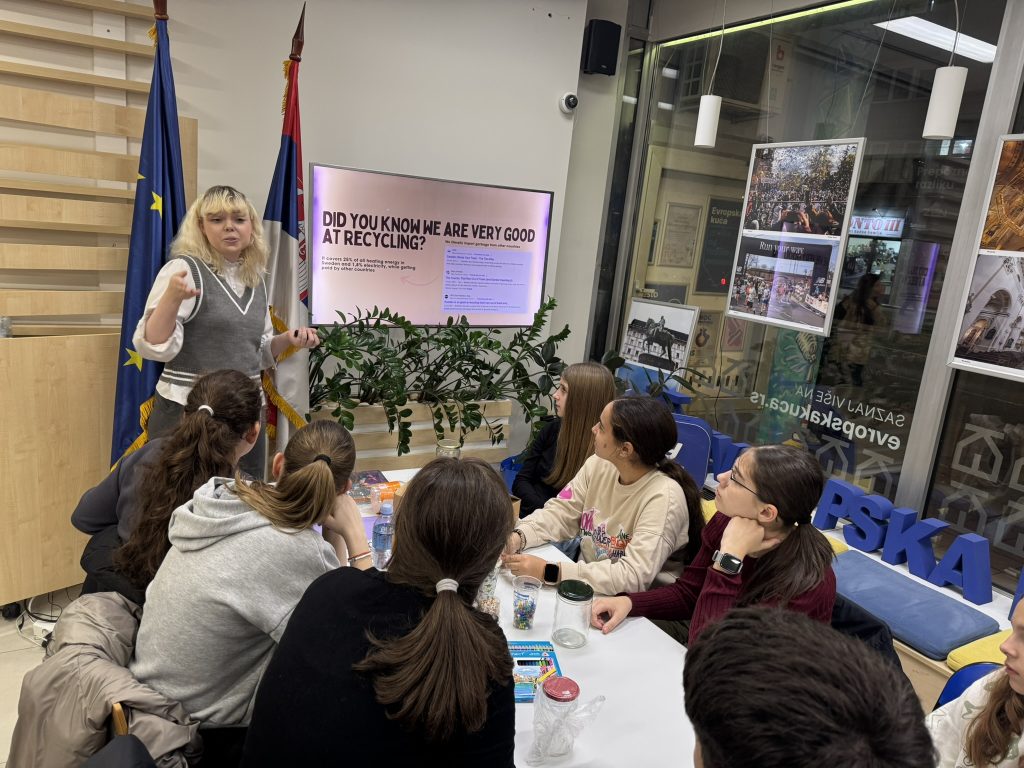
The workshop was led by Olivia Lagerlöf, a young Swede from the European Solidarity Corps currently living and working in Niš through the organisation “Azbuki”. With a smile and a coffee cup in hand, Olivia shared how Swedish children learn from an early age to repair rather than throw away, how giving objects a second life is both an ecological and a creative act, and why fika is the perfect moment to talk about it – when you’re relaxed, ideas flow naturally.
“In Sweden, fika isn’t a luxury; it’s a necessity,” Olivia explained. “It’s the time when you connect with people and the world around you. Add creative recycling to that, and you get the perfect combination: you care for the planet while enjoying company and the beauty you create yourself.”
Participants went home not only with new handmade objects, but with a simple yet powerful message: sustainability doesn’t have to be complicated or boring. All you need is an old jar, a cup of coffee, good people around you – and you’re already on the right path to making the world a little prettier and a little greener.
The event was part of the “Discover Sweden” series and European Green Diplomacy Week 2025, showing how cultures can come together in the most beautiful way – through coffee, conversation and care for our common future.
Fika traces its roots back to the 18th century, when coffee arrived in Sweden and quickly became a national favourite despite royal attempts to ban it (King Gustav III even conducted “scientific” experiments to prove it was poisonous). High taxes taught Swedes to brew coffee for special moments with homemade pastries, and during the 20th century – especially after World War II – fika was enshrined in labour rights as a mandatory paid break for coffee and conversation. From a simple pause it grew into a national philosophy: slow down, connect with others, enjoy life – and today it’s one of Sweden’s best-known exports.
European Green Diplomacy Week is a global European Union campaign that fosters cooperation in the fight against climate change and inspires climate action worldwide.

